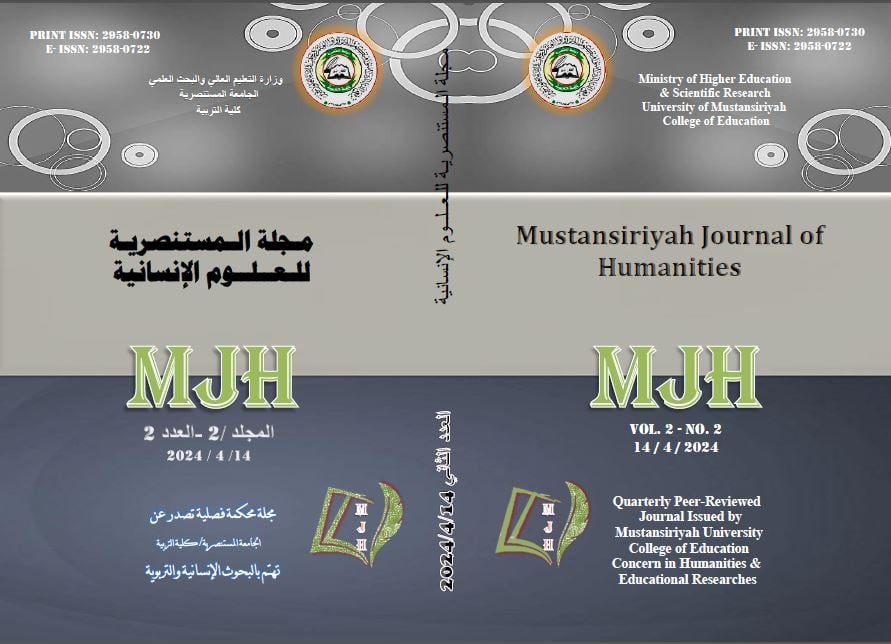Grammatical reasoning for inquiries in the blessed Surat Al-Naml
DOI:
https://doi.org/10.47831/mjh.v2i2.318Keywords:
Interrogative, questions , grammar , report , denial , Quranic meaningAbstract
My desire was to delve into a topic related to the curriculum of our constitution (Qur’an). I was passionate about trying to delve into study and linking it to the linguistic lesson, especially the grammatical meaning. Through reading it, I was stopped by the frequent occurrence of questions in this blessed surah, and the good interpretation of those questions in the field of grammatical meaning and Rhetorical, and highlighting the efficiency it holds in convincing the listener to speak, by altering the stages between the types of questions, and the good localize of these tools in them. The research titled “Interrogative Questions in the chapter of Ants (A Grammatical Study) aims to study the two types of interrogatives, and the extent of their influence in Quranic discourse on the recipient by measuring his rhetorical ability to persuade. The commentators’ treatment and analysis of the blessed verses were not in a way that gives them the potential power to analyze the Qur’anic discourse in the grammatical sense, and they did not indicate - in many cases - the meanings they carry that are sufficient for good interpretation, interpretation and deduction, and interrogative questions remain among the most effective grammatical methods. This is because questions that do not ask for an answer have a greater impact on the recipient and are a stronger argument for him. More than twelve Qur’anic verses in the chapter of ants are mentioned in the form of a declarative interrogative, and most of them are the hamza and metaphorical interrogatives, which are artistic and rhetorical means aimed at convincing the recipient of an idea or a meaning. On this behalf, this study will come to raise the issue of assertion and denial in one of the rhetorical methods in the circulation Qur’an, and the matter is more related to the denying interrogative, as it analyzes the denying interrogatives that are repeated in some Qur’anic evidence, and reveals the effect of grammar on the meaning of those verses, and the research recommends identifying Modern Arab theories according to the applications studied in Arab curricula, and the rooting of Arab methods, and the Arab researcher does not remain consistent with modern Western theories.





